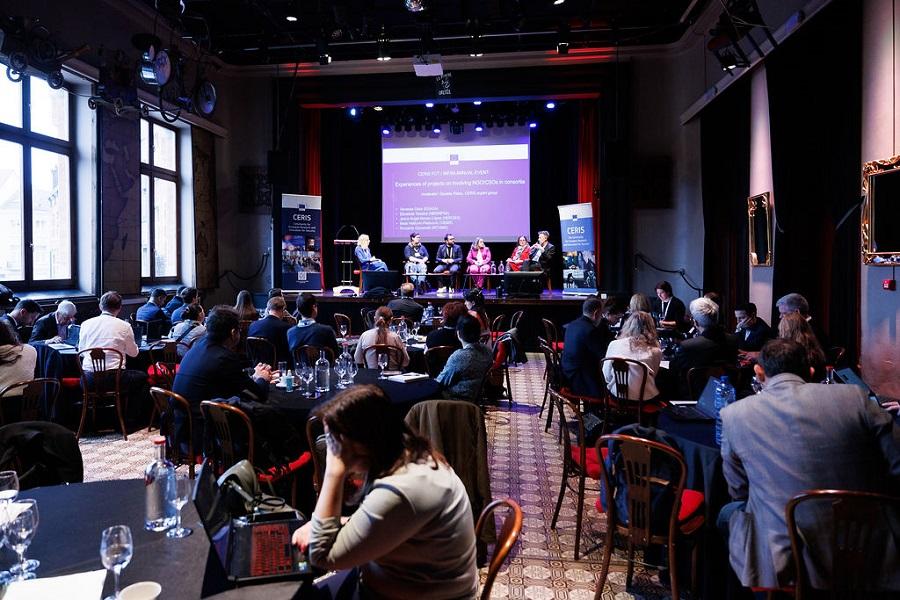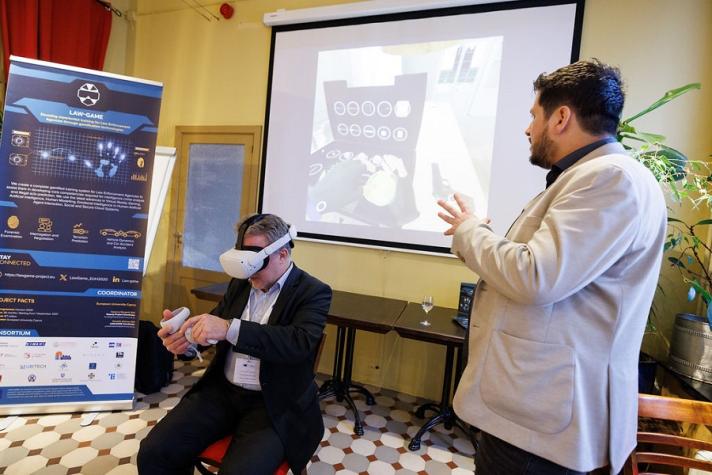
On 14 and 15 December 2023, more than 100 participants from the Community for European Research and Innovation for Security (led by DG HOME F.2, Innovation and Security Research) gathered in Brussels to discuss the impact of cross-cutting issues on research and innovation in the domain of Fighting Crime and Terrorism, including Resilient Infrastructure (FCT/INFRA).
The event was opened by Director Marta Cygan from the European Commission’s DG HOME, and brought together numerous panellists and speakers, including from the European Commission, Europol, Non-Governmental Organisations and Civil Society Organisations (for example CyberPeace Institute, European Forum for Urban Security, Protect Children, European Citizen Action Service), EU security research projects (such as LAGO, STARLIGHT, GEMS, HEROES), as well as National Contact Points and Police Authorities.
The first day of the event was dedicated to exploring the concerns that challenge effective access to high quality and quantity of research data, the issue of ethical and legal compliance, the difficulties to obtain and exchange data, and the technical solutions needed to create and store realistic synthetic data of a sufficient quality and quantity. Among others, discussions focused on the possibility of creating a common EU security research data repository, stressing the need for a collective effort by the whole EU security research community to turn this into a reality.
The second day of the event looked at understanding the possible challenges for new stakeholders, notably from Non-Governmental Organisations (NGOs) and Civil Society Organisations (CSOs), to participate in security research consortia, given that their knowledge and experience are often invaluable for the success of projects. NGOs and CSOs provide precious contributions to the EU security research projects, such as needs and requirements, feedback on citizens’ acceptance and validation of tools and methods. Moreover, they support the preparation of training and education material and awareness-raising campaigns. To make sure that civil society can fully participate in developing tools and methodologies to fight crime and terrorism or protect infrastructures, discussions centred on new solutions to reinforce the role of NGOs and CSOs in EU security research projects in the future.
To find out more about the FCT/INFRA destination, please visit our webpage.
Details
- Publication date
- 8 April 2024
- Author
- Directorate-General for Migration and Home Affairs

